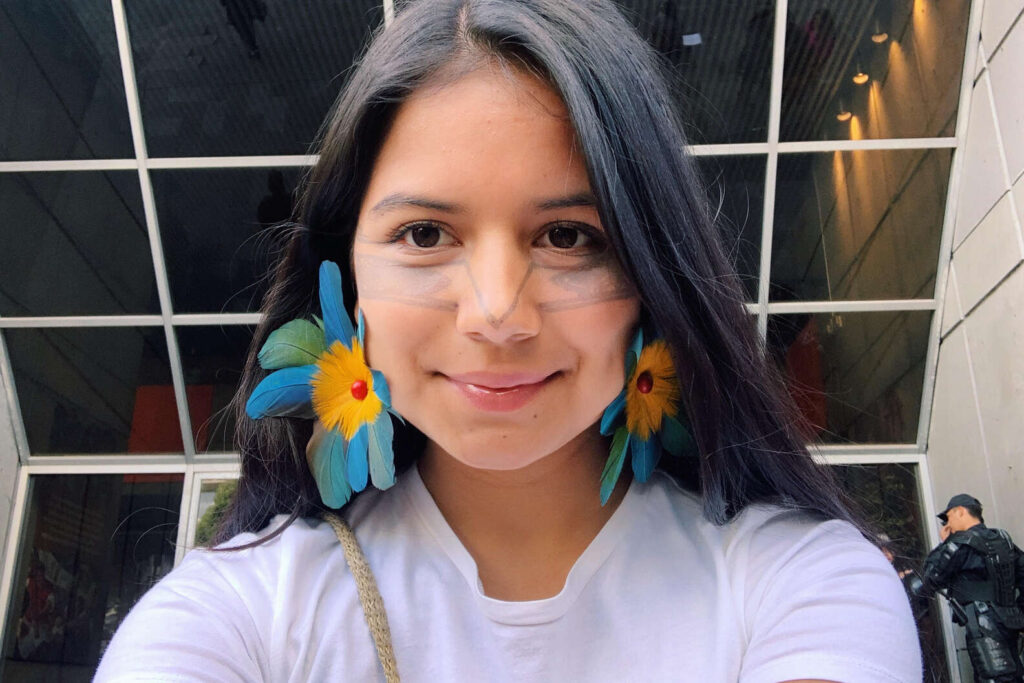Helena Gualinga talks exclusively to NowThis about the importance of inclusivity and representation.
Throughout history, there have always been trailblazers and creatives from every generation who have led the world to the precipice of historical change through grassroots organization, self-expression, reclamation, and so much more. Youth have always been the leaders of our movements toward change, and here at NowThis, we give megaphones to the change-makers of the world.
Helena Gualinga is among the 2021 class of NowThis honorees in the category of sustainability. Read Gualinga’s interview below.
What do you think is the biggest issue or challenge we face when it comes to sustainability right now?
Climate change is is the biggest threat humanity is facing right now and it’s all rooted in a culture of extraction, exploitation and consumerism. In Indigenous cultures you are taught to only take what you need but at some point that consciousness was lost for many people.
What are some things you do in your personal life to live sustainably?
I think there are small choices I make every day but it’s important to remember that individual actions are as important as a form of protest but claiming it as the solution is relieving the polluting companies, like the fossil fuel industry, from their responsibility.
More than the impact my individual actions may have I think it’s important to recognize the public boycotting of unsustainable brands and products and how powerful they can be if they are done in large scale. The individual actions are just symbolic until you do them in community.
Is there one thing we could all stop doing right now that would have a huge positive impact on the environment?
Just a couple of weeks ago, a report came out linking global brands to Amazon destruction. At a time when not only the Amazon but the planet is at its tipping point, we cannot accept this.The culture of consumerism is much larger in developed countries and I think there is a huge responsibility on them to change culture and the way over-consumption is normalized.
Why do you think change has been so slow while the threat of climate change grows?
I don’t think there was a will to ever stop climate change. The fossil fuel industry has actively been participating and lobbying at the same conference that was supposed to solve the climate crisis for decades. It’s scary how we have had the science for so many years and even after the commitments that have been made at COP21 and recently at COP26 most countries still have extractivist agendas. Most deals that are going through right now in different countries, including the U.S. and Ecuador, makes it impossible for the countries to fulfill the Paris Agreement. Yet they go on with them.
So I would like to ask that to world leaders, why is it taking so long?
What’s something that you learned about climate change that changed the way you looked at sustainability?
When I was younger I learned how carbon sinks work and I think it’s important people know that curbing climate change also means preserving the beautiful ecosystems on this planet. That also made me understand the vital role Indigenous people have as the custodians of these lands and waters. Understanding how a carbon sink, like the Amazon, could turn into a place that emits more than it absorbs also impacted me and again just shows how important the work of Indigenous people is for the planet.
Article Credits: Now This News
